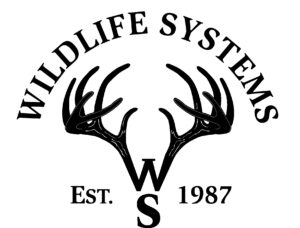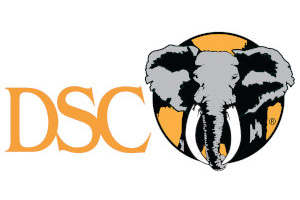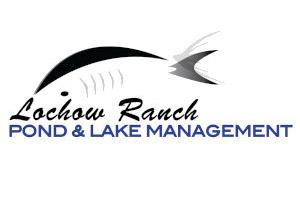Bird Banding and Monitoring Training Volunteers in Ecuador
Life Net Nature (Private) | https://lifenetnature.org
Details
Application Deadline:
05/15/2026
Published:
08/28/2025
Starting Date:
after 8/9/2026
Ending Date:
after 8/22/2026
Hours per Week:
40
Salary:
none
Education Required:
Some Undergraduate
Experience Required:
none
Tags:
Faculty / Post-Doc Appointments
Graduate Opportunities
Undergraduate Opportunities
Description
Life Net Nature Ecuador Bird Monitoring Expedition A Cost-share Volunteer Training Experience
Learn or improve bird banding and monitoring skills in the tropical Andes mountains of western Ecuador. Help advance science about tropical montane forest bird communities. Learn how to collect data to determine community and species-level responses to deforestation, forest recovery, forest fragmentation, and landscape and climate changes. Your participation helps sustain an important protected area in the mega-diverse Choco Endemic Bird Area (EBA).
Cost-share volunteers/trainees assist Dr. Dusti Becker with long-term avian monitoring and conservation in the Andes at the beautiful forest protected area, Reserva las Tangaras. In exchange volunteers receive experience-based training in mist netting and bird banding, including the use of Hall traps and practice with hummingbird banding.
Team Dates: August 9-22, 2026 (8 positions available)
December 7-20, 2026 (8 positions available)
December 7-20, 2026 (8 positions available)
Where: Reserva Las Tangaras, a 130-acre nature preserve, boasts more than 25 species of hummingbirds, dozens of colorful tanagers, the largest regional Andean cock-of-the-rock display lek, along with over 300 tropical bird species, many of which are Choco and Andean endemics. During the expedition, LNN teams typically detect around 175 - 200 different species of birds in the reserve and study area. Team members always see additional bird species while traveling to and from the project site. The reserve is also home to endangered capuchin monkeys, spectacled bears, cougars, and myriads of other wildlife species, including several rare and endangered rain frogs.
Activities: Volunteers are trained (or refreshed on) setting up and monitoring mist nets, extracting birds from nets, carrying birds from nets to banding stations, and recording ornithological and ecological data in the field. Volunteers are also trained to band birds and make standard measurements of birds. Volunteers also learn about Hall trapping and banding hummingbirds. The site is rugged, requiring above average fitness including: ability to hike on steep, potentially muddy and slippery terrain, and cover 2-4 miles on foot per day. Back or joint impairments, or obesity may make the project too challenging for some.
Volunteers will have time to explore the Mindo area, and the team visits higher-elevation Bellavista Cloud Forest Reserve on the last day before returning to Quito. The December team will participate in the Mindo Christmas Bird Count (CBC), which typically wins first or second place globally for bird species counted.
Food and Lodging: Accommodation is in a spacious research cabin, where each participant has a single bed mattress with mosquito netting, pillow, and fitted sheet. Two showers with hot water and flush toilets provide comfortable field accommodations. Meals are delicious, home-style Ecuadorian, prepared by excellent cooks, and vegetarian diets can be accommodated.
COST: Your contribution of $2250 covers transportation during the field project to and from Quito,Ecuador, meals at RLT, lodging at RLT, reserve entrance fees, salaries for Ecuadorian cooks and para-biologists, leader's costs, and a special lunch at the Bellavista Reserve. Airfare to and from Quito, Ecuador and expenses in Quito before and after the expedition are not included. Meals away from RLT during project are not included.
Your cost-share helps sustain Reserva las Tangaras, supporting year-round stewardship, educational programs, outreach materials about cloud forest wildlife, maintenance of trails and signs, cabin repairs, and feeding of resident hummingbirds. Cost-share donations are used to operate the 2-week field expedition: providing the team with food, shelter, training and transportation, as well as purchasing new project equipment and supplies.
This exciting conservation expedition begins and ends in Quito, Ecuador.
Contact Dr. Dusti Becker, dustizuni@yahoo.com, for further details and to obtain a Life Net Nature volunteer application form.
Qualifications: Experience with banding and mist-netting are desirable, but not required. We provide training. Students and recent graduates will benefit from this great resume building experience. Professionals and retirees in field biology, will enjoy the "field camp" experience and are much appreciated for their co-mentoring and experiences they share. All participants have the option of using the > 20 year project database for research publications, undergraduate projects, or graduate degrees.
Visit https://lastangaras.wordpress.com/who-are-we/ for more details about Life Net Nature and Reserva Las Tangaras.
To apply: Email Dr. Dusti Becker a brief cover e-mail detailing your experience and interest in participating on a given team. Send to dustizuni@yahoo.com. (Resume optional and helpful). Dr. Becker will send you an official Life Net Nature volunteer application form.
Contact
Dr. Dusti Becker
dustizuni@yahoo.com (preferred contact method)






